Esophagitis is an inflammation of the “food pipe” – esophagus. It may be a short-term (acute) or long-term inflammatory disease associated with damage to the esophagus mucous. Irritating or infectious factors damage it and weaken the integrity of the epithelium.
Long-lasting inflammation may weaken the esophageal wall and deteriorate blood supply, forming erosions and ulcers. Over time, the affected mucosa becomes necrotic, a fistula (connection) with large vessels adjacent to the esophagus develops, and the damaged wall becomes perforated. Regardless of the causes, the course and symptoms are similar in each type of esophagitis.
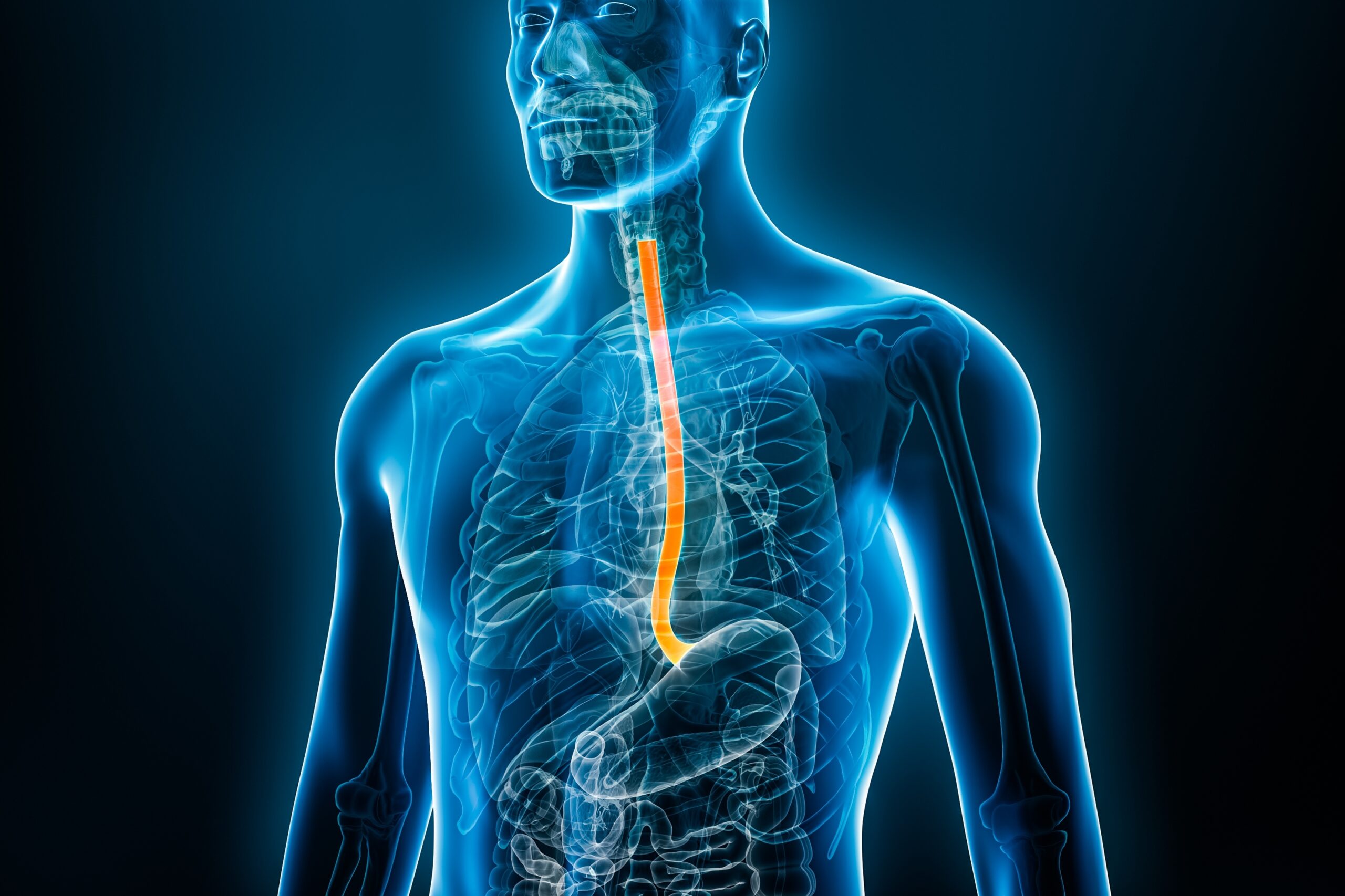
The esophagus is a longitudinal muscular tube. It connects the throat to the stomach and is part of the digestive system. Its function is mainly to transport food from the mouth to the stomach.
The esophageal wall consists of four layers:
The anatomy of the esophagus includes various types of muscles, which change smoothly as they move down the digestive tract. The upper part is dominated by striated muscles, similar to those found in the mouth and throat.
In the middle section, the structure of the human esophagus changes. Striated muscles gradually transform into smooth muscles, typical for the ducts, respiratory and urogenital systems. That kind of muscle consists of two layers, circular and longitudinal, and can remain in contraction for a long time. In this section of the esophagus, striated and smooth muscles are present, while only the latter are in the lower part.
The esophagus has upper and lower esophageal sphincters:
In the human body, the esophagus serves purely transport functions. No significant processes take place in this section of the digestive system. Food fragments are neither crushed there (the mouth performs this function) nor digested (this process occurs below, in the stomach and intestines). Nutrients are also not absorbed into the body through the esophagus (which takes place mainly in the intestines).
Have you ever wondered how the food from your mouth is moved to your stomach? The esophagus performs the last phase of swallowing, which is entirely automatic and independent of will. The pieces of pre-crushed food are carried in the esophagus partially due to the force of gravity but mainly due to muscle contractions and the slippage provided by the mucus accumulating in the folds of the mucous membrane.
When food reaches the end of the esophagus, temporary relaxation of the lower esophageal sphincter allows the swallowed contents to enter the stomach, and its tightening prevents gastric juices and acidified contents from escaping in the opposite direction.
Depending on the cause, there are a few different types of esophagitis. These include:
This is the most common type![]() of esophagitis caused by gastroesophageal reflux disease (GERD). It happens when the acidic content of the stomach backflows into the esophagus due to insufficiency of the lower esophageal sphincter. The stomach lining is covered with mucous that protects it from damage from acidic content. The esophagus, however, is not adapted this way, so when its lining has contact with stomach acid, it irritates and causes inflammation.
of esophagitis caused by gastroesophageal reflux disease (GERD). It happens when the acidic content of the stomach backflows into the esophagus due to insufficiency of the lower esophageal sphincter. The stomach lining is covered with mucous that protects it from damage from acidic content. The esophagus, however, is not adapted this way, so when its lining has contact with stomach acid, it irritates and causes inflammation.
This type of esophagus inflammation also happens more frequently in people who often vomit, for example, people with bulimia nervosa.
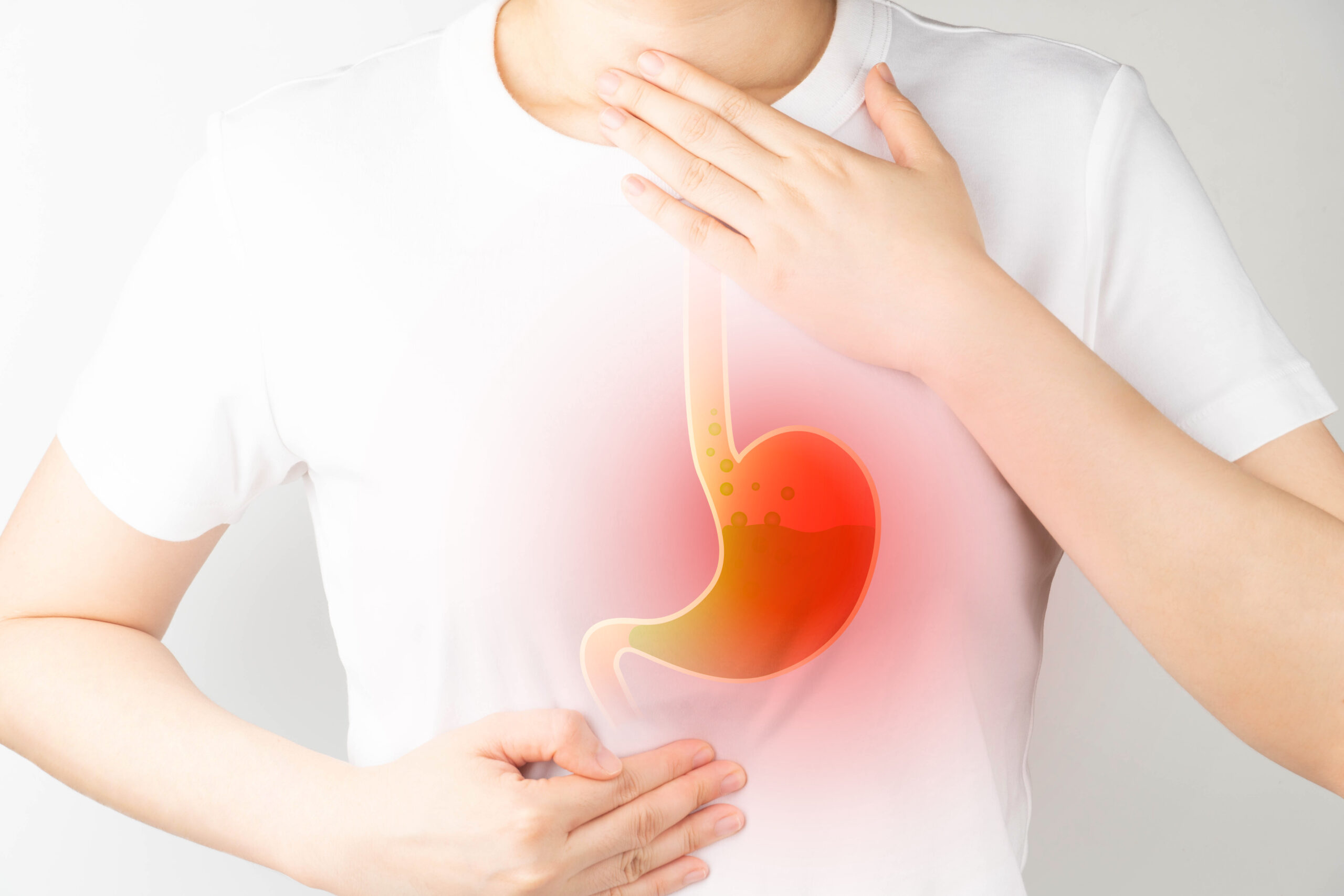
Another name for this condition is pill-induced esophagitis![]() . Some medications may damage the lining of the esophagus by creating an alkaline or acidic environment inside it. Drug-induced esophagus inflammation may go away on its own, but in some cases, it can persist for a long time, leading to complications, including strictures of the esophagus. The medications that can cause drug-induced esophagitis include:
. Some medications may damage the lining of the esophagus by creating an alkaline or acidic environment inside it. Drug-induced esophagus inflammation may go away on its own, but in some cases, it can persist for a long time, leading to complications, including strictures of the esophagus. The medications that can cause drug-induced esophagitis include:
A specific group of treatments that can lead to drug-induced esophagitis is thoracic radiotherapy. Radiation therapy that targets your chest or throat can cause inflammation of the esophagus mucosa, which may cause troublesome symptoms. However, This type of inflammation is usually a temporary reaction that goes away.
Eosinophilic esophagitis is the second most common form of esophagitis. Eosinophils are a part of the immune system – a type of white blood cell that plays an essential role in fighting parasites and allergens. Eosinophiles are typically not present in the esophagus wall. Sometimes, however, there’s a glitch in your immune system, and it sends too many eosinophils![]() to the esophagus to fight a potential threat (such as an allergen) that it detected. Eosinophiles accumulate in the esophagus wall, causing inflammation even when the potential danger passes.
to the esophagus to fight a potential threat (such as an allergen) that it detected. Eosinophiles accumulate in the esophagus wall, causing inflammation even when the potential danger passes.
This type of esophagitis is a chronic immune disease caused by immune system hypersensitivity. It most often affects people with other immune diseases, such as asthma, atopic dermatitis (eczema), or allergic rhinitis.
Infectious esophagitis happens to people with weakened immune systems. Those include people infected with HIV infection, patients going through radiotherapy, or people after transplants. In people whose immune systems work correctly, infectious inflammation of the esophagus happens extremely rarely.
Infections of the esophagus are usually fungal or viral![]() . Microorganisms that are responsible most often for esophagus infections include:
. Microorganisms that are responsible most often for esophagus infections include:
Treatment of infectious esophagitis differs from treatment of other types of esophagus inflammation. Yeast infections are treated with antifungal drugs, and viral infections must be differentiated, whether caused by herpes virus or cytomegalovirus, to be treated according to the infectious factor.
Esophagitis happens when the immune system is activated to fight some triggering factor in the esophagus or when the specific factor irritates tissues. Depending on the type of esophagus inflammation, various factors can trigger the inflammation of esophagus tissues. Causes of esophagitis include:
Some people are at a higher risk of acquiring esophagitis. The risk factors of esophagus inflammation include:
Symptoms of esophagitis include:
Be vigilant of alerting signs that could indicate a more significant health concern, like cancer, when combined with the symptoms above. Such alarming cues include unexplained speedy weight reduction, nocturnal sweating, bleeding in your digestive system, and feeling weak.
Determining if someone has esophagitis often involves taking a detailed medical history and conducting a thorough physical exam. Sometimes, it may be necessary to perform additional diagnostic tests to properly diagnose the cause and determine the advancement of the disease:
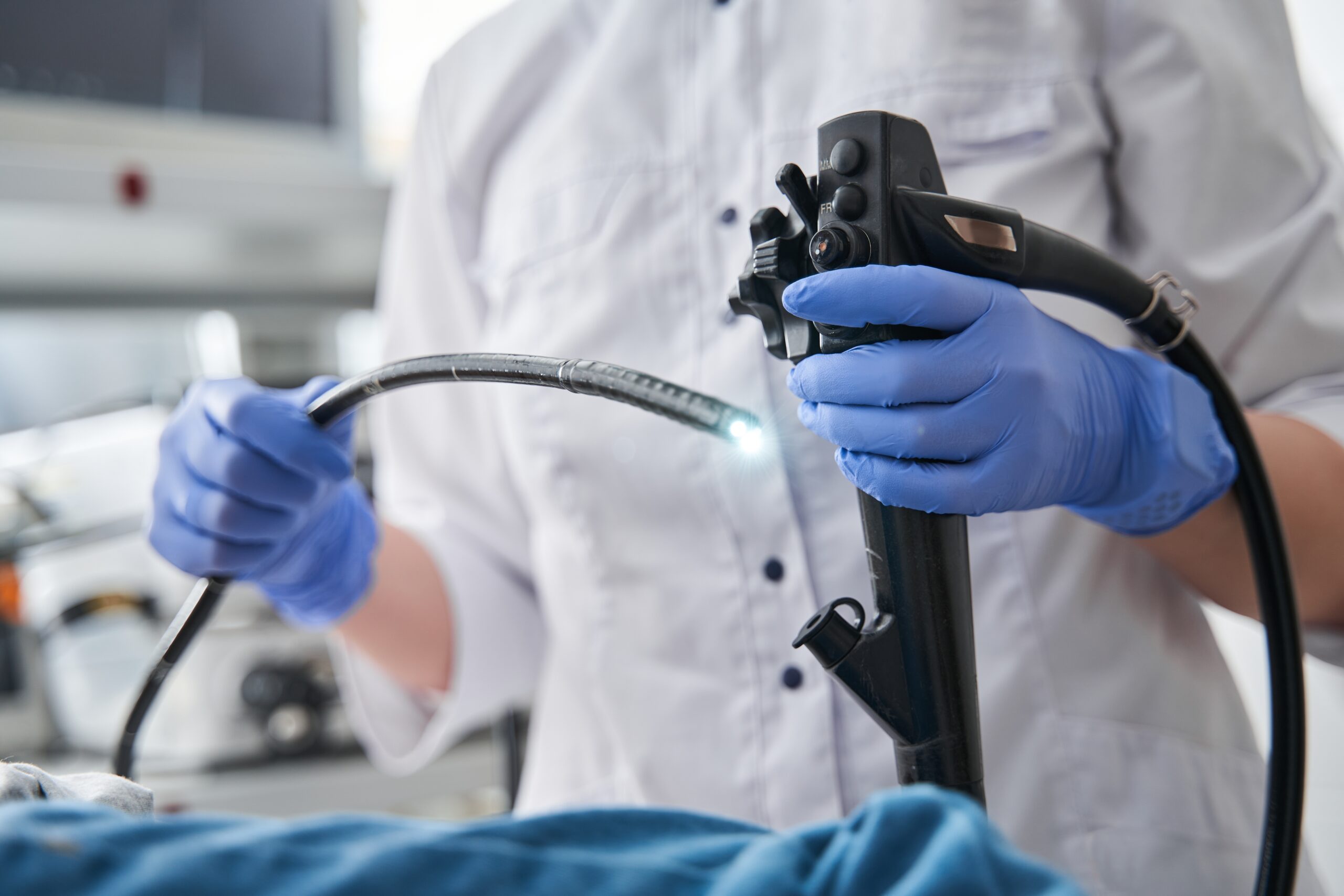
Treatment of esophagitis looks different depending on its cause. However, some medications![]() are used to manage esophagus inflammation regardless of its etiology. These include:
are used to manage esophagus inflammation regardless of its etiology. These include:
Regarding eosinophilic esophagitis, corticosteroids (anti-inflammatory drugs) and an elimination diet that eliminates allergic factors are essential. In the case of infectious inflammation, antiviral drugs (for CMV or HIV inflammation), antibiotics (for bacterial inflammation), and antifungal medications are necessary. Drug-induced inflammation management involves consulting a doctor, changing the form of the used drug, consuming it with food, and drinking plenty of water.
Apart from medications, lifestyle modifications are advised during esophagitis. It would be best to avoid fatty or spicy meals as they might further irritate the esophagus lining. Eating smaller meals and keeping the head of the bed elevated are also advised.
Complications![]() of esophagitis include:
of esophagitis include:
The key to preventing esophagitis is a modification of lifestyle and diet.
You should avoid dietary habits and food triggers that may induce esophagitis, including fatty and spicy meals, coffee, chocolate, alcohol, smoking, and a short time between dinner and bedtime.
If you are diagnosed with eosinophilic esophagitis, you should avoid foods you are allergic to. If you suspect that you suffer from nocturnal acid reflux (you have symptoms like sore throat in the morning, night cough, and voice hoarseness), try elevating the head end of the bed. If your bed cannot be regulated, try putting a wedge under your mattress.
If you are overweight, losing a few pounds is advised, as obesity is a significant risk factor for esophagitis. It would be best to remember that even simple things like taking smaller bites, chewing your food thoroughly, and avoiding bending your stomach after a meal can significantly affect your esophagus’s health.
You should contact your physician if you notice symptoms of esophagitis, such as heartburn, chest pain, swallowing difficulties, or hoarseness. Your doctor will order proper tests and implement treatment. If you risk getting esophagitis, for example, if you have a condition associated with a weakened immune system or take medications that can cause esophagus inflammation, inform your physician about it. A doctor who specializes in gastrointestinal diseases is called a gastroenterologist.
Table of Contents
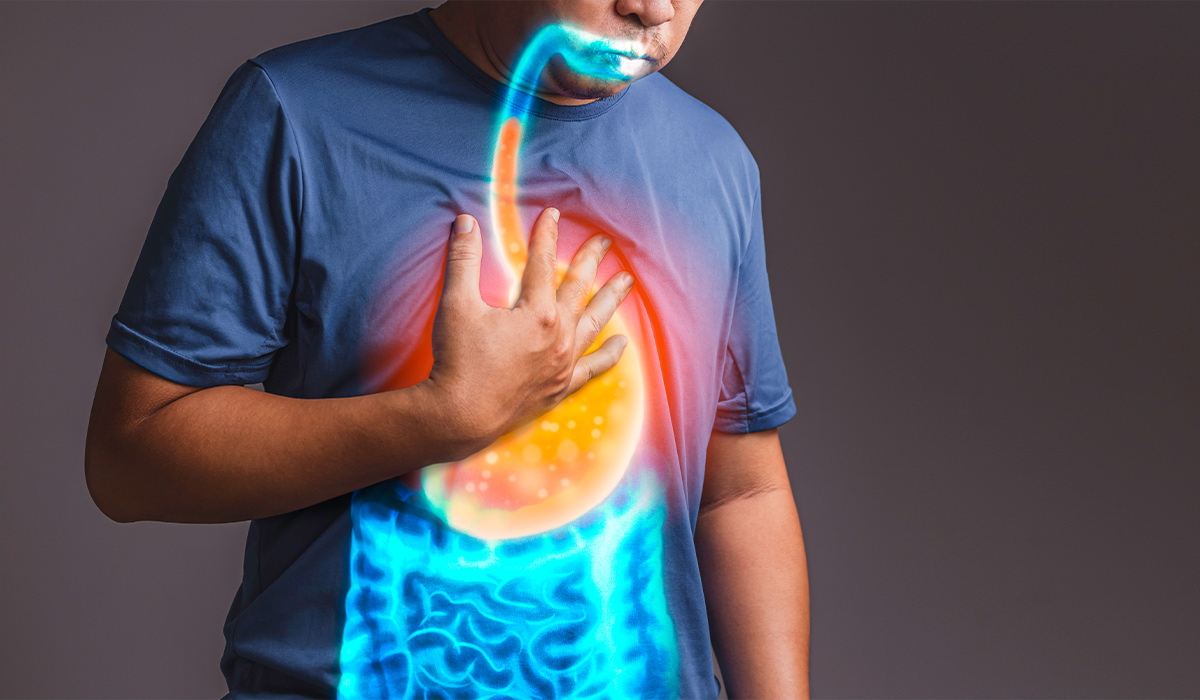
GERD is a condition in which stomach contents flow back into the esophagus. If you feel heartburn and a burning… read more »
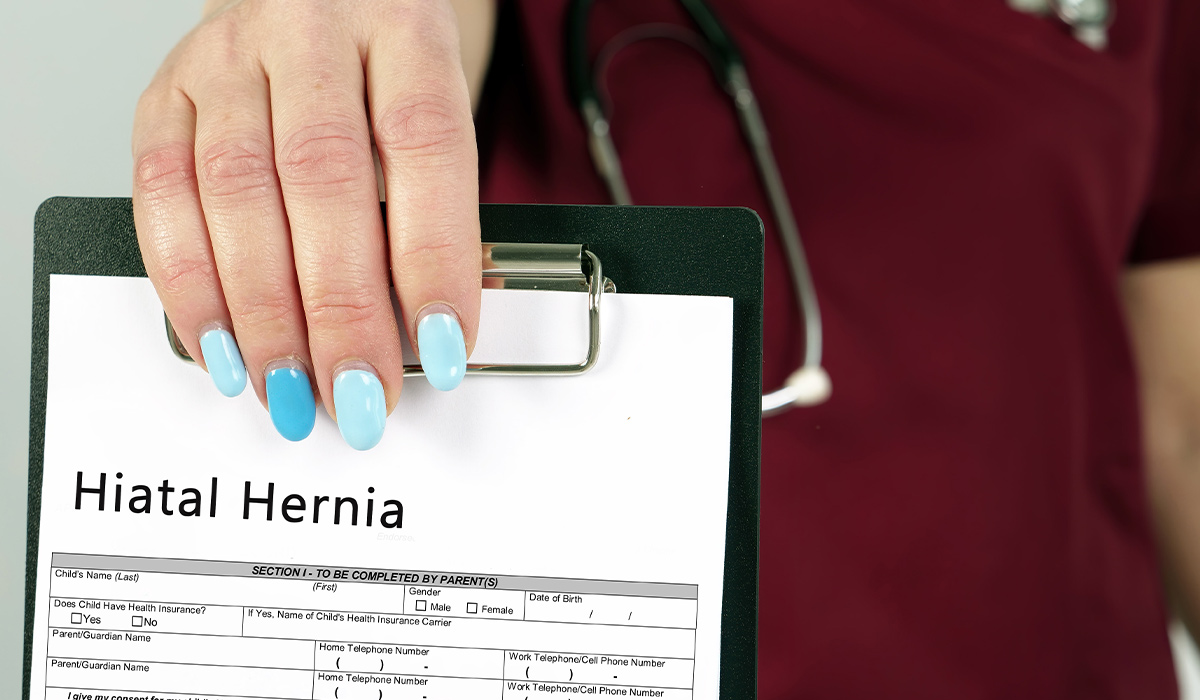
A hiatal hernia is a condition where the upper part of the stomach protrudes into the chest. Who is at… read more »
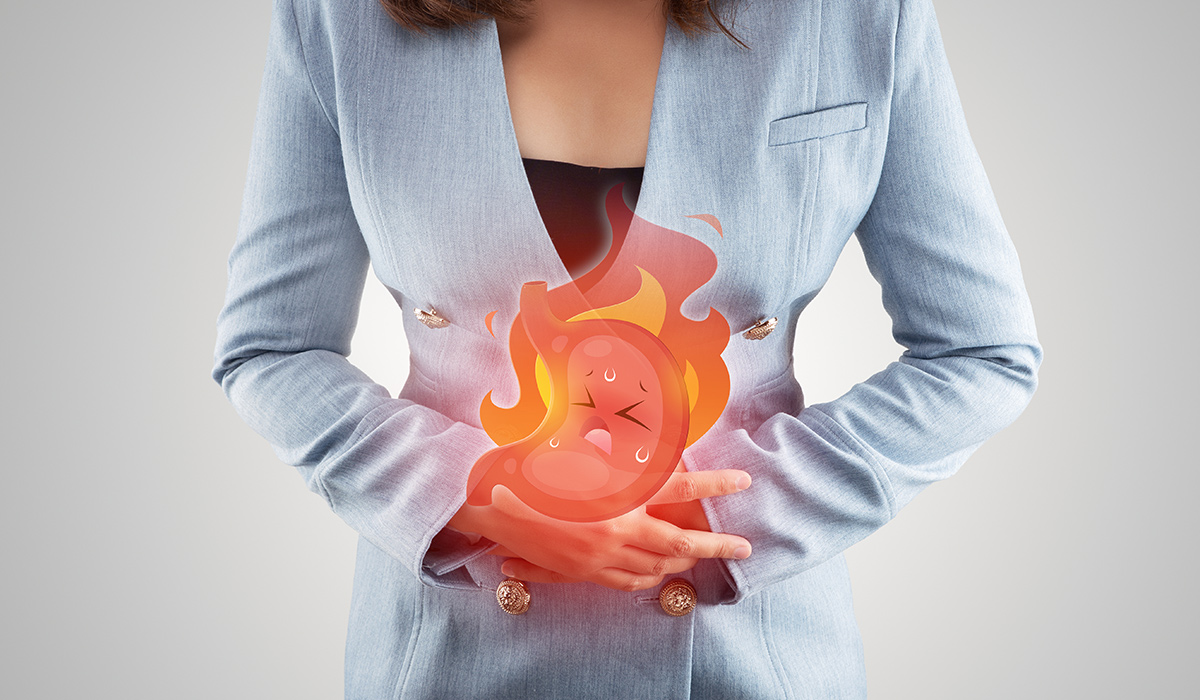
In chronic acid reflux, also known as gastroesophageal reflux disease (GERD), excessive acid in the stomach flows back to the… read more »
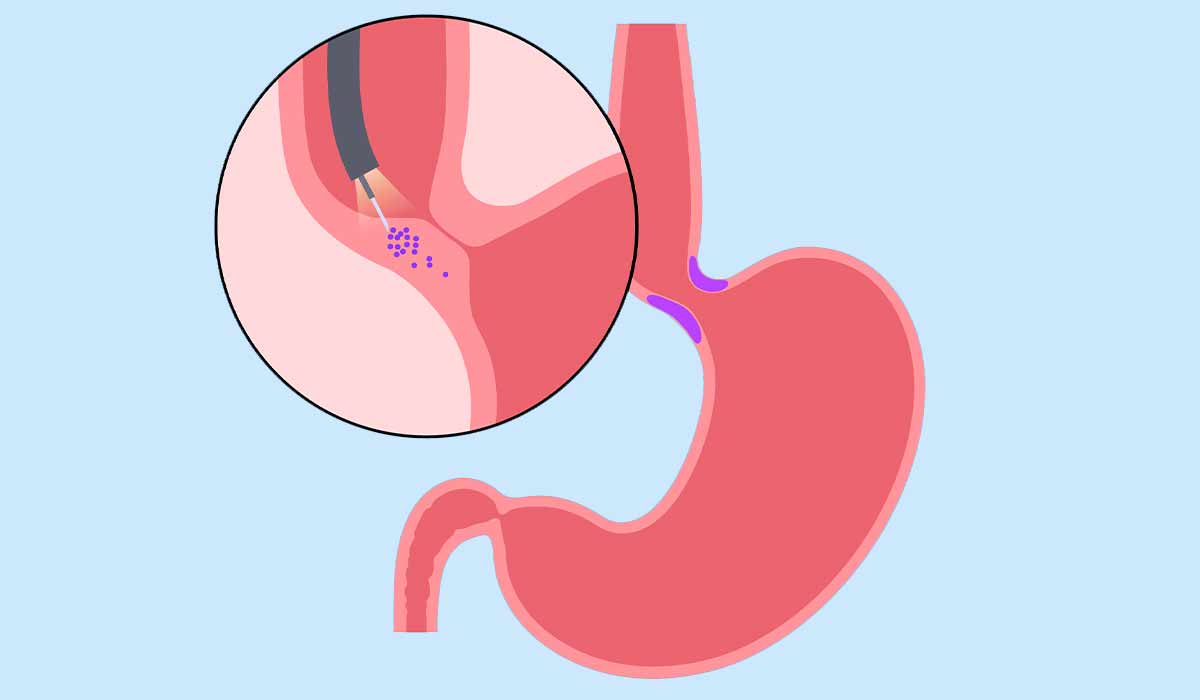
Achalasia is a motor disease of the esophagus. What are the causes and symptoms of achalasia? You can find this… read more »
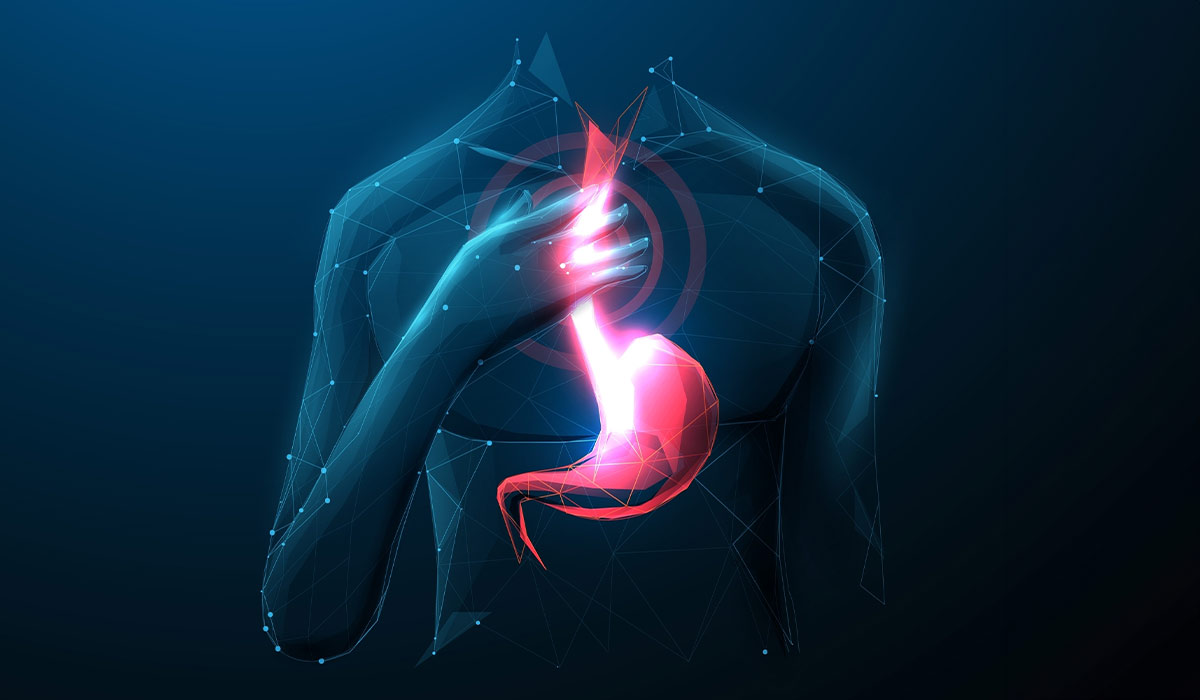
Heartburn is a common condition but it can also be a symptom of illness. Read the article and find out… read more »
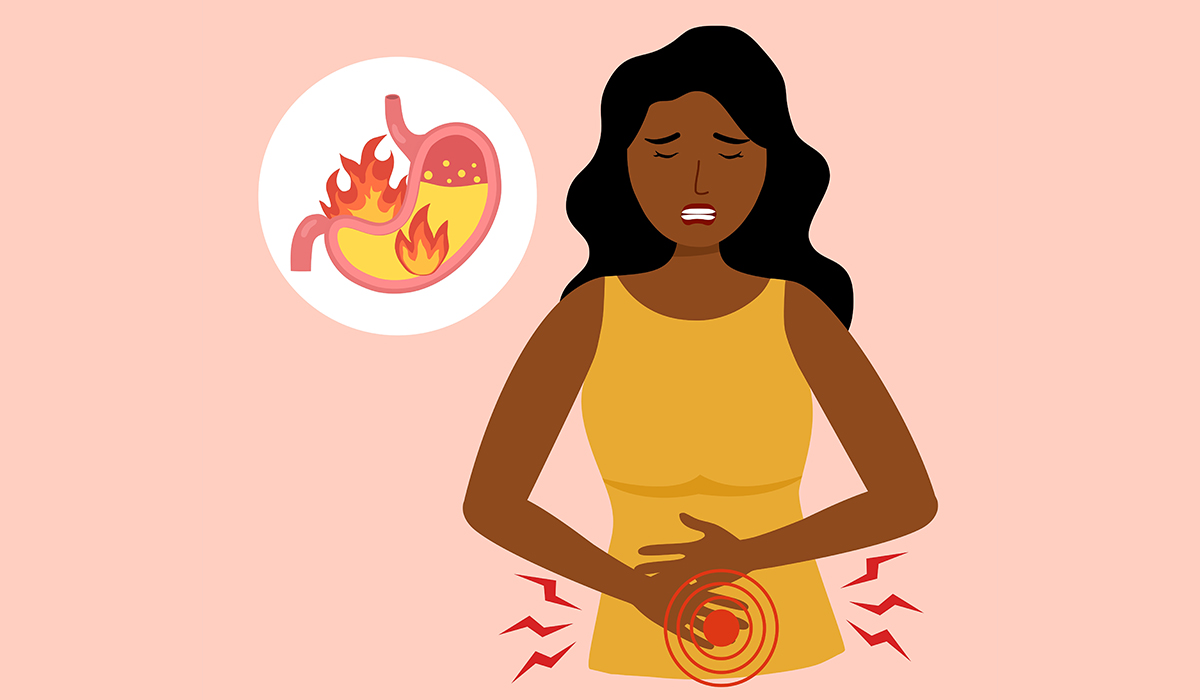
Indigestion is a set of symptoms related to problems with the digestive system. What causes this condition? What is the… read more »
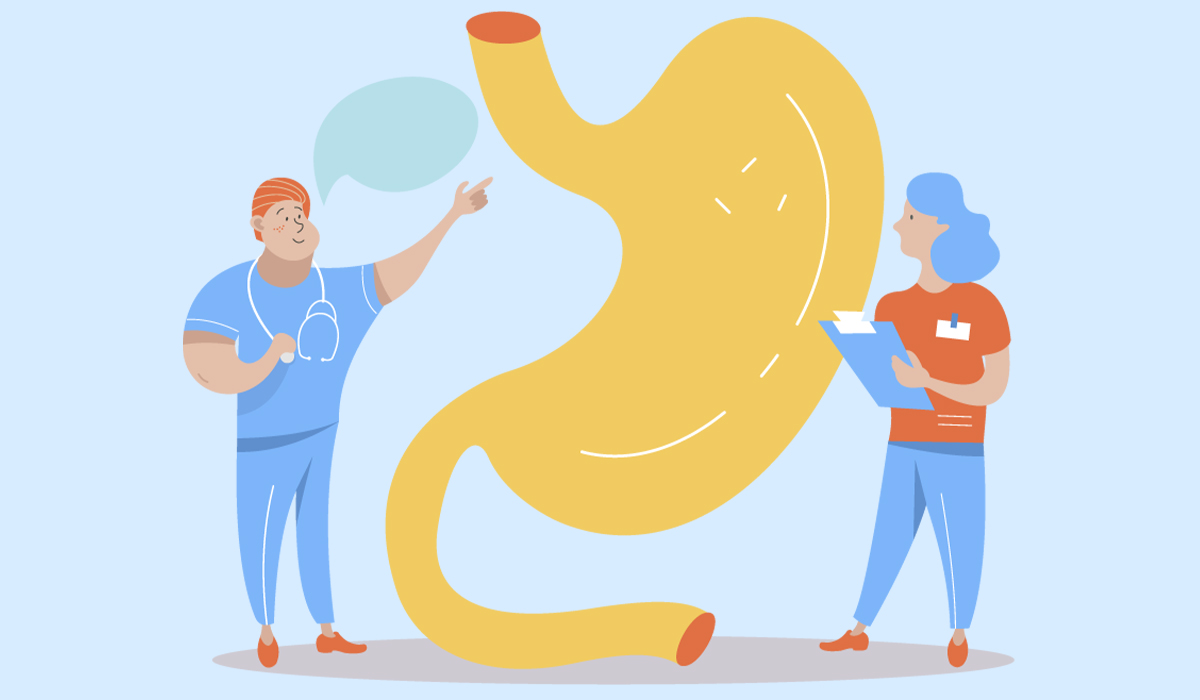
A gastroenterologist deals with the diagnosis and treatment of diseases of the human digestive system. What does a visit to… read more »
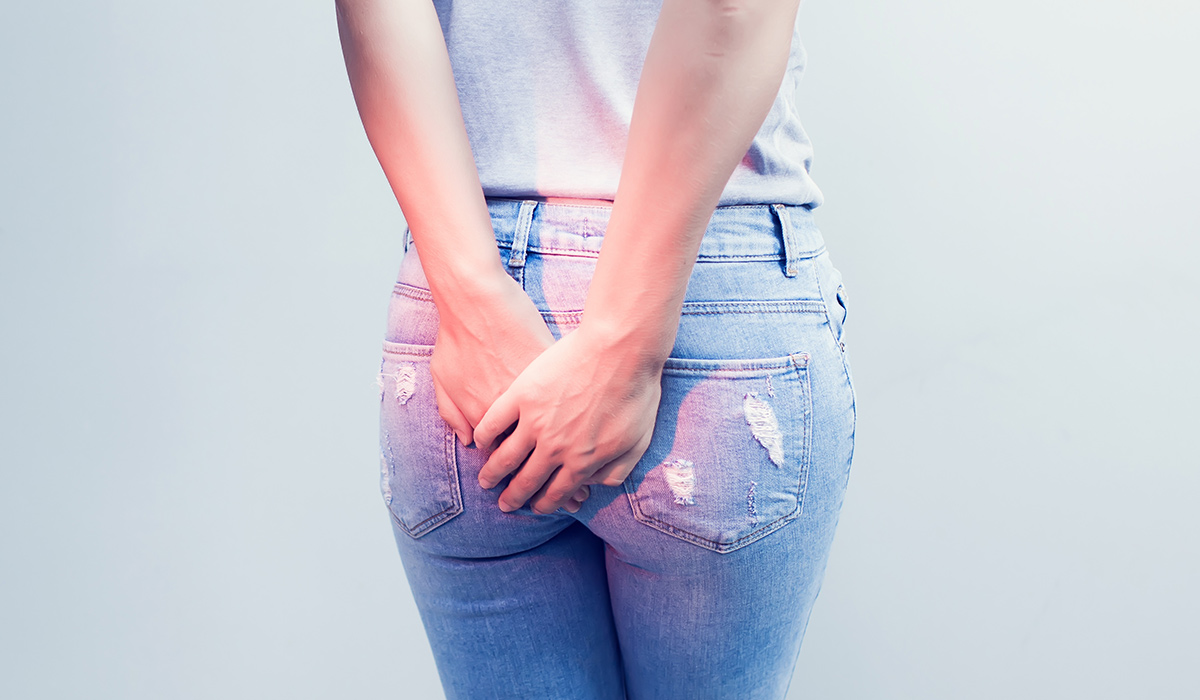
Hemorrhoids are swollen veins in the anal canal. They are accompanied by various symptoms – how to recognize them? What… read more »
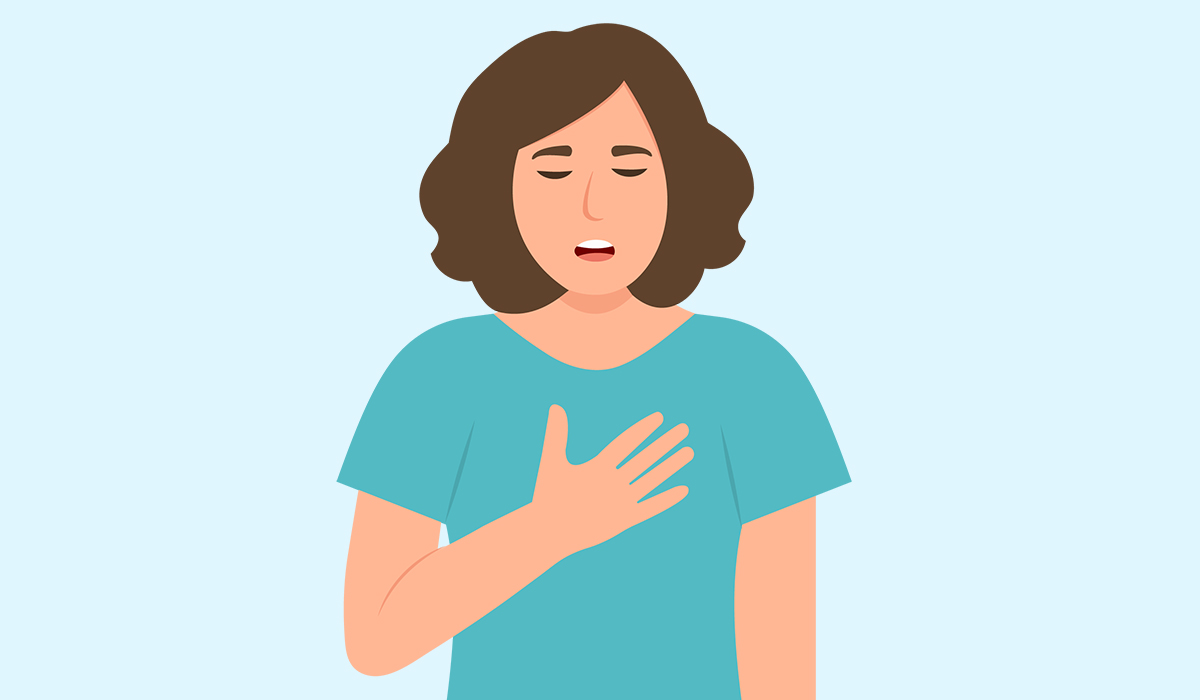
Chest pain refers to any discomfort, pressure, tightness, or pain that occurs in the chest area. It can vary in… read more »